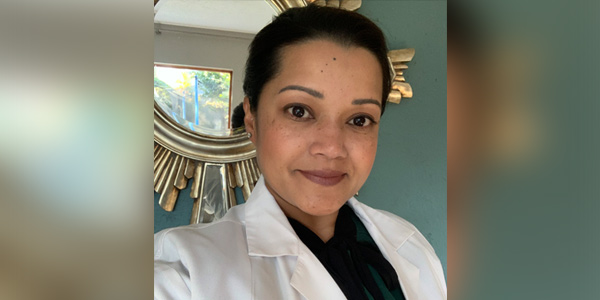Protecting Covid positive pregnant women
- Wits University
Pregnant women who have tested positive for 足球竞彩app排名 require a different approach.

The ability to foresee a brewing health disaster and actively work towards finding solutions to these disasters is valuable for the preservation of life. For Dr Shastra Bhoora, Lecturer in Obstetrics and Gynaecology at Wits University, identifying potential problems and finding solutions to minimise devastation comes with ease.
Before the coronavirus reached South African shores at the end of March 2020, Bhoora had started thinking about how the virus could affect the pregnant population. She was concerned with how hospitals would offer medical assistance to pregnant women who had tested positive for the virus. Realising that there was no plan in place, Bhoora worked to change that.
As early as February 2020, Bhoora, the Head of the 足球竞彩app排名 team for Obstetrics and Gynaecology at Charlotte Maxeke Johannesburg Academic Hospital, began developing a Standard Operating Procedure (SOP) that would guide and support medical staff with treating expectant mothers.
According to Bhoora, the SOP is a collation of extensive research on standard global medical practices in treating 足球竞彩app排名 patients. These give directives on how to handle 足球竞彩app排名 patients in order to keep both staff and patients safe, what type of treatments or therapies to initiate, the management of Covid wards, when to refer patients and who to consult about cases of severe illness. Other academic hospitals that work in partnership with Wits University, later adopted these SOP.
The agility displayed by Bhoora under difficult conditions is due to a path that she set for herself. Bhoora knew early in her career that she wanted to work in an emergency medical environment. This ambition motivated her to pursue subspecialty training in intensive care and critical care. The coronavirus, along with several variables, provided her an opportunity to extend her expertise in an unpredictable environment.
Managing two lives at once
“It was very new to get pregnant patients with lung issues, breathing problems due to covid. The targets were different in this cohort of patients because not only did they have a new disease, but they were pregnant at the same instance. So, we were looking after two patients at the same time, the mother as well as the unborn child,” says Bhoora.
“I loved it because this is what I do, I do damage control, I do disaster management. I can see things that other people can’t see. That for me has been a huge strength in terms of looking at something and saying - yes, it looks like that now, but in an hour or two, it’s going to get worse,” she adds.
Bhoora is determined to transfer her valuable skills to colleagues and the younger generation of doctors. She believes that the pandemic flagged the need to offer critical care training to obstetricians.
“Covid exposed the fact that intensive care unit facilities in our country were ill equipped to cater to patients needing that intensity of medical care. So, this is where the pandemic imposed the opportunity on me to teach.”
“It is not taught widely at the moment, but that is why I came back to Wits with this speciality degree in order to be able to drive this. The hope is that ultimately it will empower clinicians, and more importantly it will reduce maternal morbidity, mortality,” she adds.
Fighting to keep pregnant women and their babies safe from the virus has meant that Bhoora spent less time with her family. She acknowledges her family for supporting her through this tumultuous yet professionally rewarding time of her life.
“I am extremely blessed and lucky to have the family that I do. I have a supportive husband who understood that I have the skill to do this, and he never complained. I have a very forgiving son. Knowing that my home life was such a safe and happy place for me meant that I could give my all to work.”

